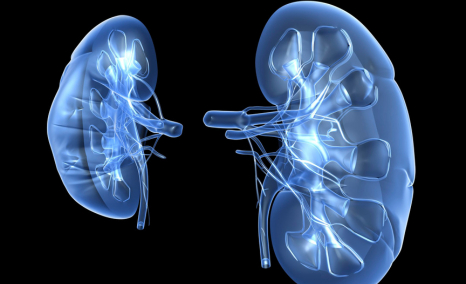With early-stage data, Chimeric antigen receptor T cell (CART) finding its way towards entering Prostate and Kidney Cancer market
Feb 24, 2022
Use of CAR-T treatments and their efficacy in Prostate Cancer
We already know that Immunotherapies have not performed well in the treatment of prostate cancer. Such medicines have failed to elicit a long-term response in patients with advanced prostate cancer. Surgery, radiation treatment, chemotherapy, androgen deprivation therapy (ADT), new anti-androgen medicines and androgen synthesis inhibitors, including PARP inhibitors are currently used to treat prostate cancer. Radiopharmaceutical agents for the treatment of prostate cancer are about to enter the major markets. Mutation-specific therapies are also being investigated for the treatment of prostate cancer. In order to induce inflammation in the tumour microenvironment (TME), robust biological methods are required. Novel immunotherapies that use T lymphocyte redirection against cancer, particularly CAR-T cell treatments, have lately received a lot of interest. CAR-T cells directed against the Prostate-specific membrane antigen have demonstrated a powerful effect against prostate cancer, and second-generation CAR-T cells outperform the first generation, providing a unique method for clinical immune-targeted treatment for mCRPC as per the data presented at ASCO GU 2022.
Poseida Therapeutics is currently conducting a Phase I clinical trial of P-PSMA-101, the CAR-T product candidate for the treatment of patients with mCRPC. The findings of this study were presented at the ASCO GU meeting this year, with 71% (10/14) of patients demonstrating measurable decreases in Prostate-specific antigen (PSA) levels, and 36% (5/14) patients demonstrating a 50% or more decrease in PSA levels. Furthermore, one patient showed signs of total tumour elimination. P-PSMA-101 also demonstrated an acceptable safety and tolerability profile and most treatment-emergent adverse events in the trial were managed with early treatment. Other than this, there are two more trials of CAR-T cells, one of which is TmPSMA-02 sponsored by the Tmunity and another is of PSCA-targeted CAR-T cell therapy which is sponsored by the National Cancer Institute (NCI).
“This interim update on the P-PSMA-101 trial shows the exceptional efficacy of this novel anti-PSMA CAR-T cell product. Thus far, at very low doses P-PSMA-101 has shown to produce a robust and durable anti-tumor response in heavily pretreated patients with mCRPC, including one pathologic complete response.” – Expert Opinion
Downloads
Article in PDF
Recent Articles
- KaliVir, Astellas licensing deal; AbCellera’s IPO; Bayer CAR-T Cell therapy collab with Ata...
- Sanofi’s Rare Disease Drug Xenpozyme’ Approval; FDA Approves Novartis’ Pluvicto; AstraZenec...
- Gastroenteropancreatic Neuroendocrine Tumours Market To Gain Substantial Momentum With Entrance o...
- Apollomics raises; Pear Therapeutics raises $64M; Lilly to acquire Loxo
- Baqsimi wins FDA nod for Hypoglycemia; Freenome captures USD 160M; FDA approval for Ruxience for ...
Analyst opinion: While initial findings from CAR-T cell treatment are encouraging, further study and efforts are necessary. Furthermore, toxicity factors must be considered throughout the development of CAR-T treatments in advanced prostate cancer because such innovative medicines will be able to enter the clinic only due to their superior effectiveness and safety profile. Anything so far, only a small number of prostate cancer patients have received CAR-T therapy, and data on safety and effectiveness, treatment combinations, and durability have mostly come from a small number of clinical studies. Based on current data and the existing prostate cancer therapeutic landscape, it is fair to argue that it is too early to anticipate the future scenario of CAR-T in prostate cancer at this time. To get a clear picture, data from large-scale investigations are vital.
CD70 is a possible promising CAR-T cell target in patients with advanced renal cell carcinoma (RCC)
Based on the findings from the Allogene Therapeutics, the Phase I study (NCT04696731) of Allogene’s first AlloCAR-T candidate for solid tumors, ALLO-316, is designed to evaluate the safety, tolerability, anti-tumor efficacy, pharmacokinetics, and pharmacodynamics of ALLO-316 in patients with advanced or metastatic clear cell RCC.
Analyst opinion: Based on the current analysis of CAR-T in solid tumors, the scenario is quite skeptical as we look forward to more data. In case of Renal Cell Carcinoma, CD70 (ALLO-316) expression is further increased in metastatic lesions compared to the primary tumors. Therefore, if successful in the future, these CAR-T cell therapy may benefit a significant fraction of patients with advanced CCRCC and sarcomatoid RCC.

Downloads
Article in PDF
Recent Articles
- Clover’s SCB-1019 RSV Revaccination Study Clears U.S. IND; FDA Approves AMVUTTRA for ATTR-CM CV R...
- DelveInsight launches Indication Active Pharmaceutical Ingredient (API) Reports
- Nubeqa (darolutamide) increases overall survival in men with mCSPC/HSPC when added to androgen-de...
- Personalized Medicine Approach: An Upholding Paradigm for a Promising and futuristic Patient Cent...
- Gilead’s Magrolimab Plus Azacitidine for MDS; FDA Approveds VANFLYTA for Newly Diagnosed AML; FDA...



